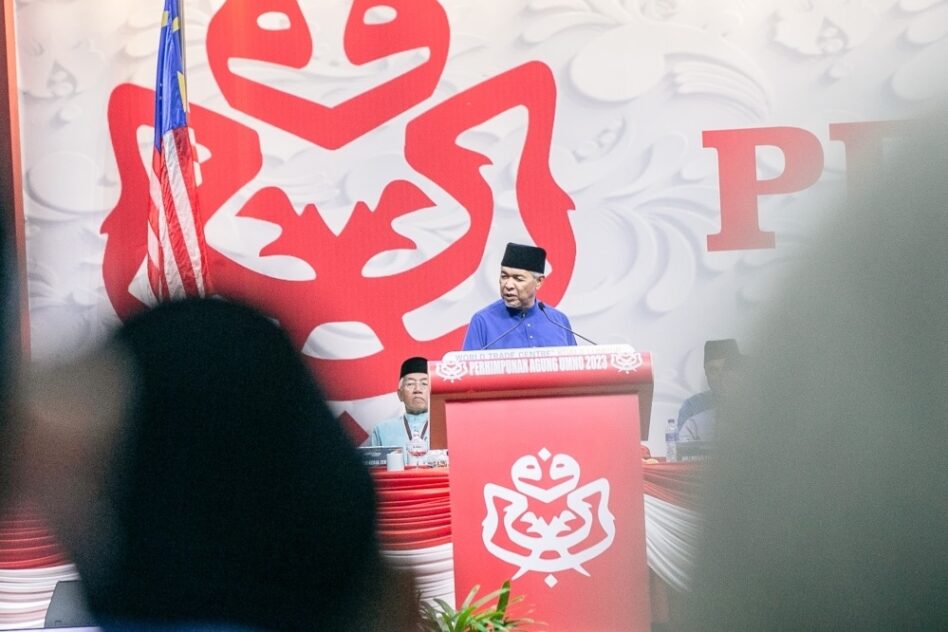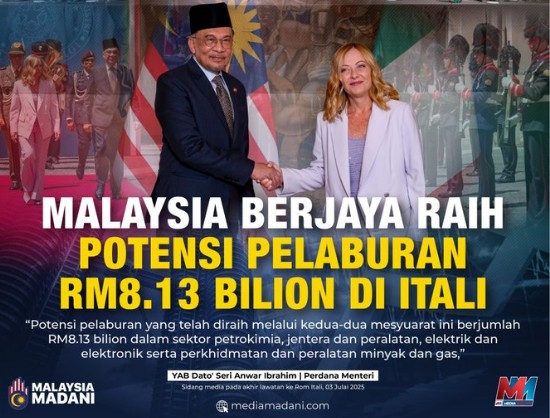By Nik Nazmi Nik Ahmad
CITIES across the United States are continuing to seethe with mass protests over the murder of George Floyd, an unarmed African American man, by police in Minneapolis, Minnesota. This also follows a string of other killings of African Americans such as Breonna Taylor, Ahmaud Arbery, and others.
These protests are just the latest eruption against America’s systemic racial and socio-economic injustice as well as police brutality. Matters have been exacerbated by the outright racism and gross incompetence of their president, Donald Trump.
The US, which prides itself in lecturing other countries about freedom, needs to take a good, hard look at itself.
It has no right to pontificate while its ethnic minorities, indigenous citizens, disadvantaged and vulnerable peoples, peaceful protesters and refugees seeking succour in its shores are brutalised by its so-called law enforcement agencies.
This is above and beyond the horrific suffering the foreign policies undertaken by its predatory elite have caused in Palestine and other countries.
Good policing is essential
Many Malaysians have been angered by the events that led to the George Floyd protests – and rightfully so.
It been pointed out – also correctly – that our own human rights record, especially in relation to policing is likewise far from ideal.
It is hypocritical for us to condemn what is going on in America, while ignoring our own shortcomings.
Police cannot function effectively without the trust and confidence of the communities they serve. It is a two-way street.
Victims of police brutality and abuse can be found across all ethnic groups, such as the cases of N Dharmendran and Aminulrasyid Amzah.
Even one death – whatever the race or faith of the victims – is too many.
Any wrongdoing, abuse or malpractice by authorities must be exposed, brought to justice and corrected immediately if the rule of law is to have any credibility in our country.
Yes, Malaysia is – thankfully – very different from America. But what is going on there right now is a warning to Malaysia of what could happen if we keep ignoring or kicking the can of these problems down the road.
The PDRM deserves respect
The Royal Malaysian Police (PDRM) deserves the respect and support of all our people.
Their personnel have served honourably and rendered sacrifices in all major national crises our country has faced – including during the on-going Covid-19 novel coronavirus pandemic and the movement control order (MCO) period.
Making our police more professional as well as responsive to human rights is in everyone’s interest – especially the PDRM’s personnel.
Upholding the Tun Dzaiddin Report
In 2004, Tun Mohamed Dzaiddin Abdullah, the former Chief Justice of Malaysia, was appointed by the Yang Dipertuan Agong to chair the Royal Commission to Enhance the Operation and Management of the Royal Malaysian Police.
The Commission’s findings, which became known as the “Tun Dzaiddin Report”, was published a year later with more than 600 pages and 125 suggestions to make the PDRM more people-centric.
The report’s Strategic Objective argued that Malaysia’s police:
“…must continue to uphold the law, maintain law and order and combat crime, but must pursue these ends in compliance with human rights, restricting and infringing upon them only when necessary and permissible in law. PDRM must see itself more as a ‘service’ than as a ‘force’ and the guardian of the people’s rights though it will need to retain some of its paramilitary capabilities and characteristics. Finally, PDRM must be more transparent and accountable, especially to independent bodies established by the government and to the people.”
The report talks about democratising the police force to engage all stakeholders in society, thereby capturing the PDRM spirit of “polis dan masyarakat berpisah tiada”. It also talks of a dignified police service, that acts for the national good, not narrow partisan interests and enjoying better working and living conditions.
The IPCMC needed but…
This brings me to the proposed Independent Police Complaints and Misconduct Commission (IPCMC), which was one of the 125 suggestions of the Tun Dzaiddin Report.
This proposal – for better or for worse – became the main point of debate arising from the Commission and its Report.
Fourteen years later, a Bill to create it was finally tabled by the Pakatan Harapan (PH) government in 2019. While the Second Reading was postponed in December that year, it was still a step in the right direction.
All stakeholders – including the leadership of the PDRM – have had opportunities to give feedback on it.
Certainly, existing mechanisms like the Enforcement Agency Integrity Commission (EAIC) are inadequate in relation to the PDRM. The EAIC’s shortcomings are well known, including the fact that it lacks the ability to independently sanction misconduct.
Any coalition that runs the government – Perikatan Nasional, Muafakat Nasional or PH Plus – must take up the IPCMC Bill. This is yet another piece of urgent parliamentary business that it is being neglected.
My colleagues and I will certainly rigorously debate the Bill when it comes before us in Parliament to ensure that the reasonable interests of all stakeholders are protected.
All feedback can be considered. For instance, new names can be considered if “IPCMC” has become too divisive or if it makes the police and their supporters feel overly defensive.
But the key is that the Bill should be passed and the body that the Tun Dzaiddin Report called for comes to life as soon as possible – in letter and spirit.
…more also needs to be done
But improving policing in Malaysia cannot just end with the setting up of the IPCMC.
After all, it was just one of the 125 recommendations of the Tun Dzaiddin Report. A PDRM that is able to keep Malaysians safe, as well as free from corruption and other abuses, will require the recommendations of the Report to be implemented in full – including its suggestions regarding recruitment, training, equipping and the improvement of the welfare of personnel.
As the Report noted:
“The Commission is of the view that human resources should be significantly increased in certain sections of PDRM, such as in CID and in the Commercial Crime Investigation Department… The Commission also notes that modern policing is increasingly becoming more complex and sophisticated, requiring diverse professional competencies that are not part of conventional police competencies.”
And that:
“The Commission considers remuneration for PDRM personnel as well as promotion prospects relatively satisfactory because they are comparable to the situation in the Malaysian Armed Forces and the general public service. The Commission however recommends a special allowance for all police personnel who are posted to urban areas where the cost of living is higher.”
Also:
“…PDRM will need to implement comprehensive and integrated programmes for the effective utilisation of lCT solutions in police operations. Similar IT methods and means are required with respect to asset management including transportation to ensure that available resources are adequate and sustainable. These are vital factors in determining the effectiveness and efficiency of PDRM.”
Crucially:
“…one of the major problems afflicting PDRM is inadequate housing and the poor condition of its housing and work premises, although there are modern and comfortable structures as well… The poor living and working conditions of a significant portion of police personnel cannot but have a negative impact on their morale and self-esteem. The condition also affects their performance. Equally important, the poor condition of a number of police stations, administrative offices and training institutions as well as inadequate facilities create a negative impression of the police among the public. The situation aggravates public perceptions of poor police efficiency and service. This unsatisfactory state of affairs cannot be allowed to continue.”
Today, now 15 years after the Tun Dzaiddin Report, Malaysia’s policemen and women are still facing these issues.
Pushing to implement the recommendations of the Tun Dzaiddin Report holistically would help to win over many of those who are resistant to transformation in the police service to make it equipped to face 21st Century Malaysia.
The George Floyd protests have revived global debates about the role and nature of policing.
Clearly change is needed, including in Malaysia.
One gets a sense that not only the public and civil society, but also politicians and the police themselves understand this.
With political will, there is no reason why this cannot be a positive change for stakeholders across the board. – June 22, 2020
Nik Nazmi Nik Ahmad is PKR chief organising secretary, MP for Setiawangsa and chair of Defence and Home Affairs Parliamentary Special Select Committee.









